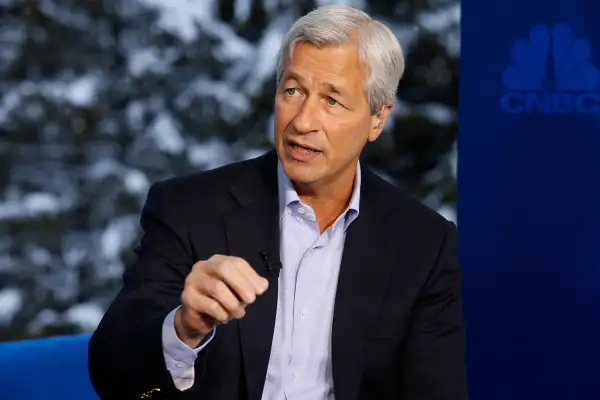JP Morgan CEO Jamie Dimon Says America's 'Secret Sauce' Is in Danger

Older countries often wonder how America grew up to become the biggest, most important economy in the world.
For JPMorgan chief Jamie Dimon, the explanation is simply Americans' belief in our institutions, especially businesses and the government.
But in his new letter to shareholders, Dimon warns that some of America's core beliefs are flagging — and that our nation's "secret sauce" is in danger.
"We need trust and confidence in our institutions – confidence is the 'secret sauce' that, without spending any money, helps the economy grow," he writes.
This mistrust currently dominates within the business community, he says, which sees political leaders incapable of tackling tax reform, infrastructure investment, education reform, more favorable trade agreements and immigration, among others.
"We need a pro-growth policy environment from the government that provides a degree of certainty around longstanding issues that have proved frustratingly elusive to solve," he writes.
According to Gallup's "Confidence In Institutions" poll, based on surveys from last summer, only three major institutions have at least 50 percent of the population retaining more than "some" confidence in them: the military, small businesses, and the police. Congress ranks dead last on the list.
Dimon blames government leaders for creating an overly burdensome regulatory environment that is sapping growth and further undermining America's belief in itself.
"Something has gone awry in the public’s understanding of business and free enterprise," he writes. "Whether it is the current environment or the deficiency of education in general, the lack of understanding around free enterprise is astounding. When businesses or individuals in business do something wrong (problems that all institutions have, including schools, churches, governments, small businesses, etc.), they should be appropriately punished – but not demonized."
Though he acknowledges big business deserves some blame for the current predicament — and "big business" is second-to-last in Gallup's confidence poll — now is not the time to cast more aspersions, Dimon says.
"Rather than looking back, it is now more important than ever for the business community and government to come together and collaborate to find meaningful solutions and develop thoughtful policies that create economic growth and opportunity for all," he writes.